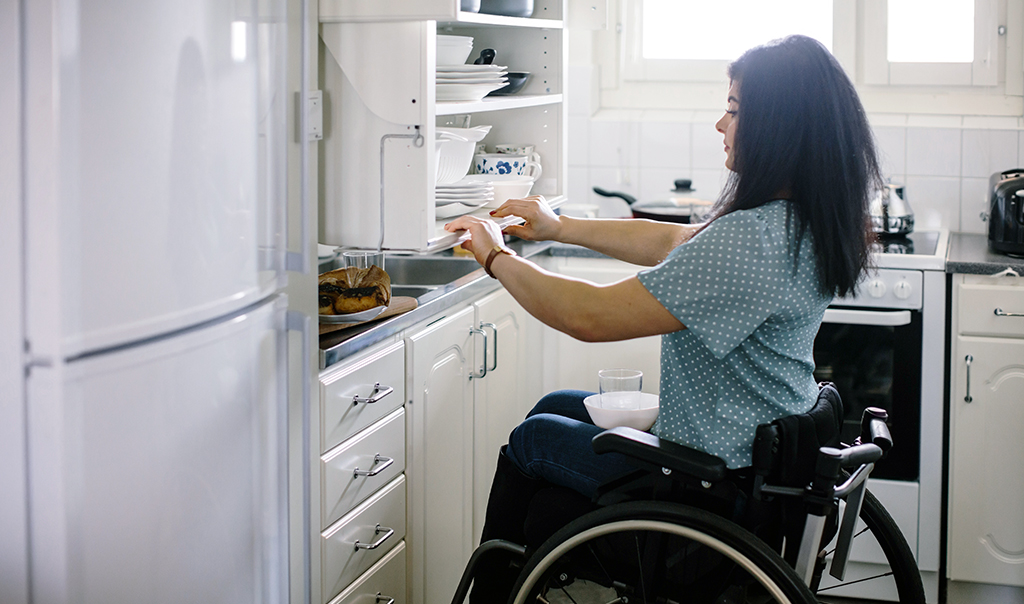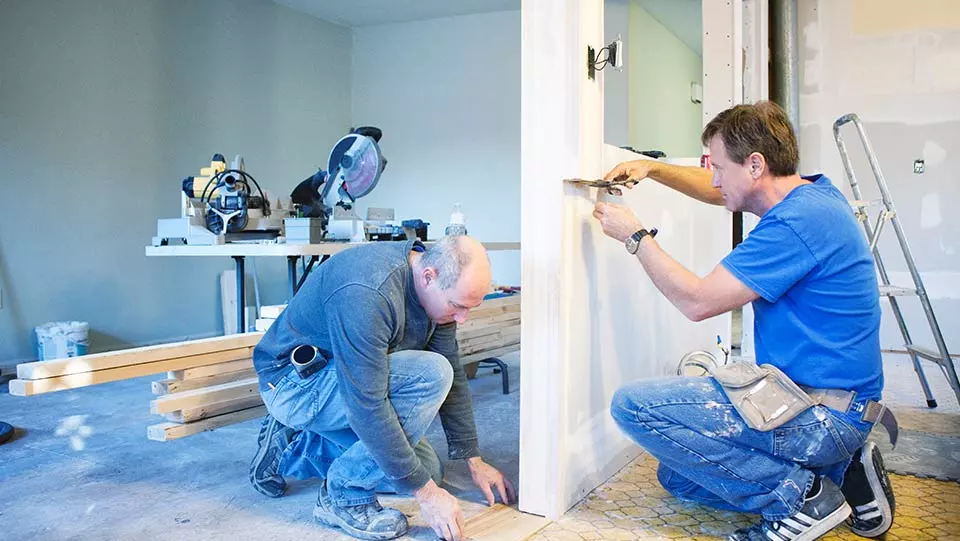Homeowners and Auto Insurance Tips for People with Disabilities


As technology advances, more people with disabilities are taking advantage of new home and car modifications that help to enhance their quality of life. And often, these modifications can be covered by home and auto insurance.
Here are some practical tips to help protect the value of essential home and auto customizations you’ve made or are planning to make soon.
Homeowners insurance tips for people with disabilities
If you own a home, homeowners insurance can provide funds to cover the cost of repairing your home when damages occur. These losses may come from fire, theft, vandalism, weather-related events and other causes.
That’s why it’s important to understand how you can help protect your specialized equipment or structural enhancements.
- Let your insurance agent or insurance company know about your home modifications. Examples of modifications include a ramp to get into your home, or a bathroom with a roll-in shower and a raised toilet. The insurance agent or company can review the extra costs of these modifications and help update your coverage appropriately.
- Consider purchasing additional replacement cost protection (ARCP) coverage. ARCP is usually stated in percentages such as 25%, 50% or even 100%. ARCP provides an additional amount of coverage up to a specified percentage amount for dwelling repairs and can help you guard against inflation in rebuilding costs.
- For your belongings, there’s also contents replacement cost coverage. Contents replacement cost coverage is designed to help replace personal items damaged by a covered cause of loss. This includes specialized furniture such as lift chairs or beds.
- For specialized equipment, consider a personal articles floater (PAF). While a typical homeowners policy includes some personal property coverage, it doesn’t cover specific valuable items. A PAF policy is designed to cover these valuable items—including specialized equipment—and provide increased coverage. Your agent can help you determine whether a PAF makes sense for you. Be sure to save receipts for these items to help establish their value.
- Ask your agent or company if there’s an option to increase additional living expenses (ALE) coverage. If you suffer a loss and must leave your home until it’s repaired, ALE typically covers a hotel, rental home or other arrangement. Some insurance companies allow you to increase your ALE coverage.
- Choose your home insurance deductible amount carefully. Though deductibles are not specific to people with disabilities, it’s important to consider how much of a potential claim you’re able to pay. The lower the deductible, the higher the insurance premium. If you’re on a fixed budget, you may prefer a lower deductible, such as $500. Or, if you don’t want to submit small claims to the insurance company, you can choose a higher deductible, such as $5,000.
Auto insurance tips for people with disabilities
Car insurance can help shield you from costs related to auto accidents and other losses, like auto theft. If you’re in an accident, you may have expenses for car repairs, property damage, medical bills, lost wages and more. Without the coverage you need, you could have to pay those bills on your own. And for people with disabilities, it’s essential to ensure your car insurance covers the vehicle that makes driving easier for you.
- Let your insurance agent or insurance company know about your auto modifications. Common auto modifications include hand controls, pedal extensions and wheelchair accessibility. Insurance carriers may treat car customizations differently, so it’s important to inform your agent about those customizations.
- Consider extended rental reimbursement coverage. You may have an accident and need a rental car while your car is being repaired. Many insurance policies cover the initial rental car period, up to a maximum dollar amount and number of days. Extended rental reimbursement coverage often increases both the daily dollar maximum and number of days.
- Choose your auto insurance deductible amount carefully. As with homeowners insurance, consider your budget and how high or low your auto policy deductibles should be. Car insurance deductible amounts can vary based on whether you have collision or comprehensive coverage. Collison covers damage to your vehicle resulting from an accident, while comprehensive covers non-collision losses, such as hail or vandalism.
- Consider new car replacement coverage. As cars age, they can lose significant value. If you’re in an accident, you may only receive the current—typically lower—value of your car instead of the original cost. New car replacement coverage can help you make up the difference. This coverage is designed to replace your recently purchased car with the same model at the brand-new car cost. Coverage terms vary by company.
Explore your options
If you have modifications and specialized equipment for your home, car or both, make sure these life-improving enhancements are covered and replaceable by insurance. To explore insurance options or upgrade your current coverage, get a quote for home or auto insurance, find an agent or contact a Travelers representative today.



